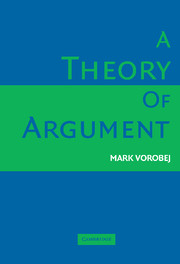2 - Cogency
Published online by Cambridge University Press: 17 July 2009
Summary
The Four Cogency Conditions
In offering an argument, an author aims to achieve rational persuasion. A cogent argument, we'll say, is an argument by which you ought to be persuaded. More precisely, an argument A is cogent for some person P, within some context C, just in case it is rational for P, within C, to be persuaded to believe the conclusion of A, on the basis of the evidence cited within A's premises. An argument is non-cogent, for a particular person within a particular context, just in case it is not cogent, within that context, for that person, i.e., just in case that person should not be persuaded by the argument in question. In this chapter, we'll discuss four conditions that are individually necessary and jointly sufficient for argument cogency. This discussion will also allow us later, in Chapter 3, to clarify the notion of argument strength that we employed at an intuitive level throughout Chapter 1.
The four components of argument cogency are designed to delineate the conditions under which it is rational for someone to adopt a new belief, within an argumentative setting. Cogency is a person-relative property of arguments, since whether it's rational for someone to adopt a belief, on the basis of certain evidence, will often depend upon what else that person already rationally believes, and sometimes (perhaps less obviously) upon other features of her subjective standpoint.
- Type
- Chapter
- Information
- A Theory of Argument , pp. 47 - 110Publisher: Cambridge University PressPrint publication year: 2006

